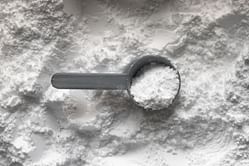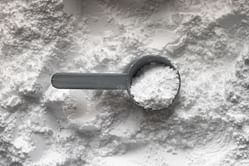Creatine is a popular supplement among athletes and bodybuilders. It is often used to improve athletic performance and gain muscle mass. There are many benefits of taking creatine including increased strength, improved endurance, and enhanced recovery. Creatine has also been shown to improve brain function and protect against cognitive decline.
If you are looking for a way to improve your performance and build muscle, creatine is a great option. It is safe, effective, and has a variety of benefits that can help you reach your fitness goals.
What is creatine and How is it used?
Creatine is a substance that is procured in the liver, kidneys, and pancreas from amino acids. High-energy phosphate groups are stored as phosphocreatine by creatine supplementation. The stored phosphate groups are donated to ADP for the regeneration of ATP.
When you work out, your body uses ATP (Adenosine triphosphate), which is the energy currency of our body. ATP is converted into ADP (Adenosine Diphosphate) as a byproduct for yielding energy.
Creatine supplement helps convert ADP into ATP, so the energy is gained and recovered by the body. Various potential research has been carried out showing that athletes who are consuming creatine supplements have faster muscle growth in comparison to those not taking them. One research also concluded that consuming creatine post-workout has greater benefits.
The ideal dosage of creatine is 3-5g/ day. Another method is taking 20g/ day for 5 days or a week and then changing the dosage to 3-5g/ day. This method is called the loading method, it just works faster. But studies have shown that you can go with any method suitable to you and gain the same results.
A quick tip would be to stay hydrated while taking creatine supplements so that they can work really well in your body.
What are the benefits of taking creatine?
Reduce inflammation during intense training
One benefit of creatine is it reduces inflammation and cell damage done during intense training. Supplementing creatine can be effective for endurance training and resistance training.
Helps in muscle gain and improves exercise performance
Creatine stores the phosphate groups in muscle, which means they reproduce the ATP in your body. When you go for intense exercise, you lose ATP and as creatine gets produced again in your body you can do intense exercises for more time. This mechanism leads to gaining muscles faster.
Can improve cognitive function
Creatine tends to influence brain function and cognitive capacity. According to potential research, oral creatine supplementation enhanced memory performance in 45 young adults.
Reduce fatigue
Many meta-analyses and literature concluded that creatine is a helpful supplement to reside fatigue in athletes and fitness groups. One of the research results showed that five days of supplementation of creatine delayed fatigue in college-aged women during cycle ergometry.
Improves mood and may help cure sleep deprivation
Supplementing creatine can have positive effects on your mood and may improve your sleep quality. A double-blind study was conducted to observe the effects of creatine on sleep deprivation, mood state, and cognitive psychomotor performance. The study not only concluded the benefits of creatine supplementation on mood state and sleep quality but also showed that it can help with dia difficult tasks which are stressful.
Helps with neurological disorders
Creatine can improve the conditions of people suffering from neurological disorders such as epilepsy, Alzheimer, amyotrophic lateral sclerosis (ALS), and Parkinson's disease. The reason creatine helps with neurological disorders is that creatine stores the phosphate groups in the body and many neurological disorders arise due to the reduction of phosphocreatine in the brain.
Frequently Asked Questions:
Is creatine healthy for your body?
The well-researched and best form of creatine is creatine monohydrate. What creatine does is recover energy and it is naturally produced in the body too. Supplements are safe and healthy to use and creatine is a natural supplement. However, it is suggested that you should stick to the ideal dosage.
What are the negative effects of creatine?
Creatine is a safe supplement but possible side effects of creatine include - nausea, stomach ache, and muscle cramping.
Who should not take creatine?
Individuals with kidney problems, liver problems, and high blood pressure are advised not to uptake creatine. Also, creatine should not be consumed during pregnancy and it is advised that teenagers under the age of 18 too shouldn't take creatine.
Is creatine good to take every day?
Creatine has tons of benefits and one can take creatine on workout days and rest days as well. Taking creatine on rest days helps to elevate the creatinine content of your muscles. If you keep up with the ideal dose consumption of creatine, uptake of creatine is probably safe. It is suggested to consult your health coach or doctor before you start taking a creatine supplement.
How do you know if creatine is working?
Generally, the results of supplementing creatine start showing up within a week. Some of the signs which show that creatine is working for you are mentioned below.
You can do more reps than before without getting tired
You gain muscles
Your strength is increased
You feel less dehydrated than normal


